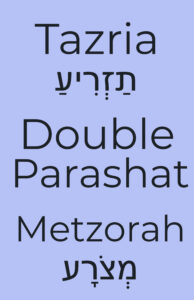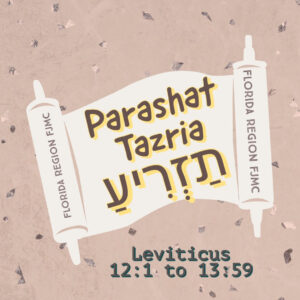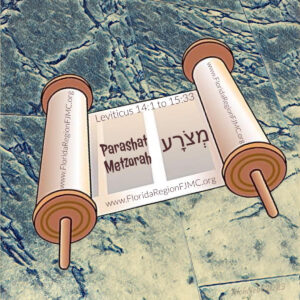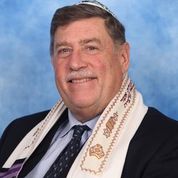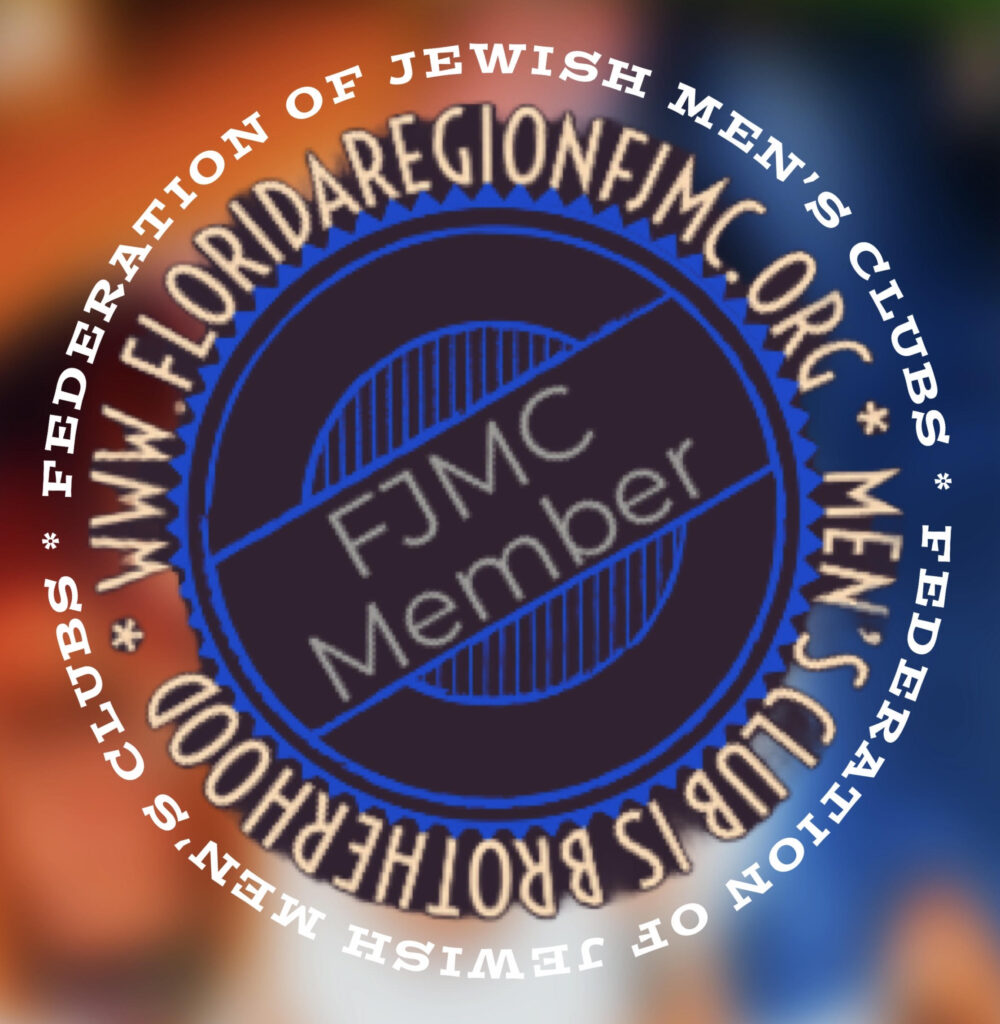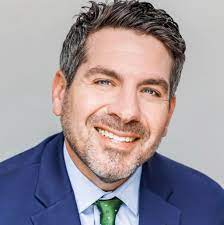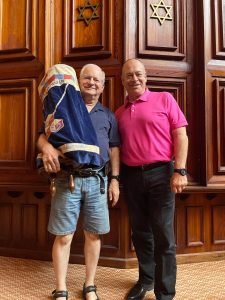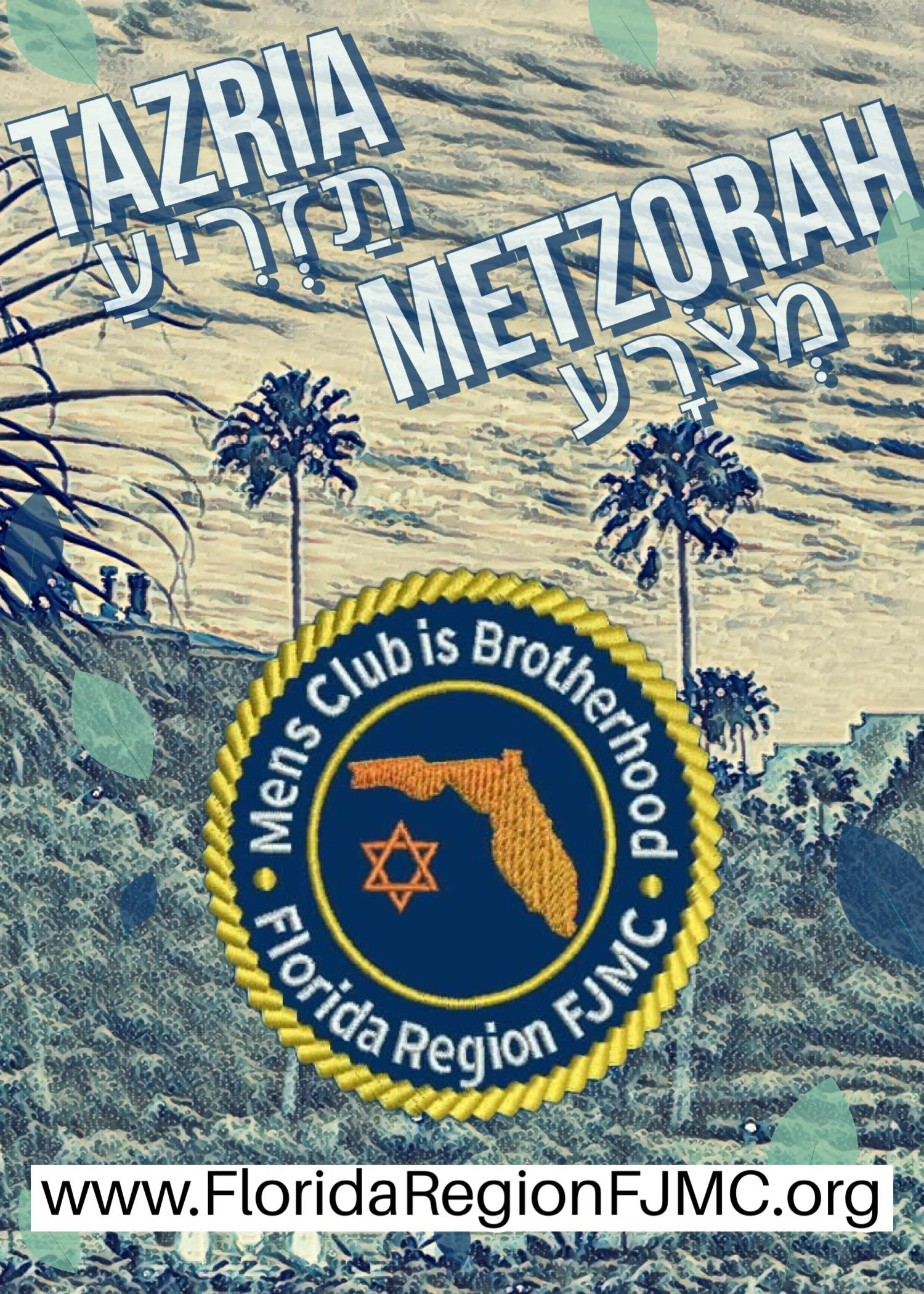
When you Choose Shabbat, you choose to learn that every Shabbat is different and special. This week we read from Parashat Tazria (תַזְרִיעַ) and Parashat Metzorah (מְצֹרָע ), the 27th and 28th weekly Torah portions in the annual cycle of Torah readings as well as the last two readings from the Book of Leviticus.
According to Wikipedia, Tazria (תַזְרִיעַ), Leviticus 12:1 through 13:59, contains 3,667 Hebrew letters, 1,010 words, 67 verses and makes up 128 lines of the Torah scroll. In contrast, Metzorah (מְצֹרָע), Leviticus 14:1 through 15:33, contains 4,697 Hebrew letters, 1,274 words, 90 verses and 159 lines of Torah.
This week’s a double Torah reading is a due to the lunisolar Hebrew calendar containing up to 55 weeks, the exact number varying between 50 in common years and 54 or 55 in leap years. According to Wikipedia, in leap years (such as 2027) Parashat Tazria is read separately. In common years (such as 2025, 2026 and 2028), Parashat Tazria is usually combined with the next parashah, Metzora, to help achieve the number of weekly readings needed.
Rabbi Michael D Klein of Temple Torat Emet offers his insights on this week’s double Torah reading, Tazria-Metzorah for Shabbat, May 3, 2025 aka 5 Iyar 5785:
“A story is told of the famous sage Rabbi Hillel z”l who was engaged in studying Torah with his students from morning until night. Each Friday afternoon or before a Yom Tov, he would excuse himself and rush out of the class toward home. His students were curious as to why? One day they secretly followed him home and awaited until he emerged to attend synagogue right before the beginning of Shabbat or Yom Tov. Immediately, he saw his students, who inquired of the Rabbi where he had been and why he had left in such a hurry? His answer gives us insight into this week’s double Torah portion which deals with cleanliness and care for our bodies. He responded that one of the greatest mitzvot in the Torah is caring for our own bodies and he rushed home erev shabbat and erev yom tov to bathe and groom himself. Tazria- Metzora is about mindfulness that what emanates from our bodies and especially from our mouths is not always as clean as it should be.
How do we deal with these issues since, as imperfect humans, we are not always as mindful as we should be? First, like Rabbi Hillel we must increase awareness of our own physical needs and limitations and view our bodies as holy receptacles for our souls which are connected to G-d. Second, we must be always careful what we say to each other and about each other to avoid Lashon Hara! The formula for Lashon Hara which led to an evil skin ailment – Nega Tzaraat – is that the person who was afflicted was isolated outside of the main encampment. There was an opportunity and a formula for healing – the person who was afflicted had to address their own speech and seek forgiveness from the congregation and G-d.
Each of us, has to acknowledge that our bodies, our souls and our words must follow guidance from the Torah. Our actions and words have consequences, and we must be willing to expect that, like ripples in a pond, nothing occurs in a vacuum. May the words of our mouths and the meditations of our heart be acceptable to You our G-d and redeemer!”
Questions to Consider:
- Why is the lowly hyssop plant chosen to be part of the purification ritual?
- How can blood, the lifegiving fluid, ever be considered as unclean when it emanates from our body?
- What verses establish the connection between Lashon Hara and Nega Tzaraat?
- Where else in the Torah is this connection found?
Rabbi Michael D. Klein attended Yeshiva College of South Florida and served as Torah Reader, Hebrew teacher, Chazzan and spiritual leader of various synagogues throughout South Florida. In January 2015 he became Ritual Director, Bnai/Bnot Mitzvah instructor and 7th grade Hebrew instructor for Temple Torat Emet of Boynton Beach. In October 2019 he was accepted into an accelerated track and received his smicha from Yeshiva Adath Wolkowisk and has been the Rabbinic leadership of Temple Torat Emet since August 2020. In September of 2022 he was appointed Rabbinic and Spiritual Advisor of the Florida Region of FJMC.
Choose Shabbat; choose to celebrate, to light candles, sing songs and learn a little Torah.
This message is brought to you by the Florida Region of the Federation of Jewish Men’s Clubs (FJMC). We serve the needs of affiliated Men’s Clubs and Brotherhoods throughout the State of Florida. Learn more about the FJMC Florida Region and our growing network of Jewish Men’s Clubs and Brotherhoods at: www.floridaregionfjmc.org and please visit & LIKE our Facebook Group at: www.facebook.com/FloridaRegionFJMC.
The FJMC is a confederation of over 200 Jewish Men’s Clubs and Brotherhoods representing over 20,000 members across the United States, Canada, Latin America, and beyond. Learn how YOUR Jewish Men’s Club or Brotherhood can affiliate with the FJMC at: https://fjmc.org/for-clubs/affiliating-with-the-fjmc/.
